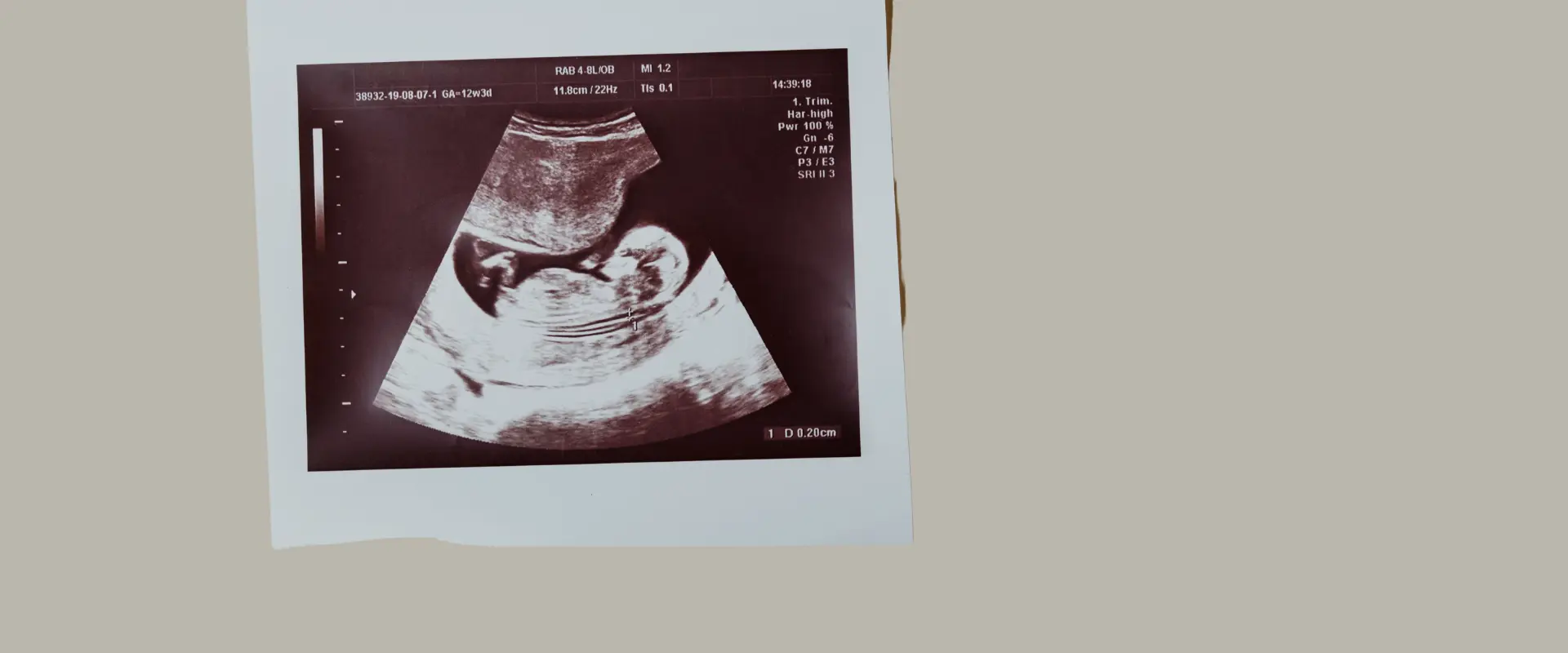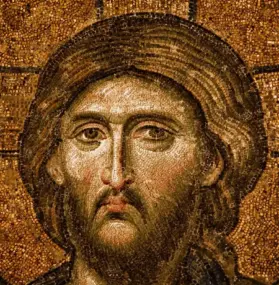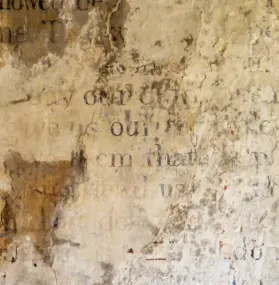- by Carrie Shaw
- on September 2, 2025
This article is dedicated in memory of Charlie Kirk, a courageous voice in the pro-life movement, who was assassinated this week, just two days after the publication of this article. Charlie’s tireless advocacy reminded countless people of the value of every human life, born and unborn. His influence endures in the lives he touched, the convictions he strengthened, and the stand for truth he took so boldly. May his legacy be carried forward in all of us who believe that life is sacred and worth protecting.
If our theology doesn’t affect our real-life decisions, then, really, what’s the point? What use is a collection of facts stored in our heads, or the ability to articulate those facts to a listening audience, if our hearts remain unmoved and our lives remain unchanged?
Theology is not about cold theories or the accumulation of knowledge for knowledge’s sake, but a prayerful journey where mind and heart are engaged. It sharpens our belief, but it must also translate into tangible action. If our study of God leaves us the same as before, then, quite simply, we’re doing it wrong.
This article is on a topic I have long wanted to write about — the pro-life debate. I have hesitated many times, being acutely aware of the sensitivity of the subject and the strong emotions it stirs. My hope is that what follows will be received in the spirit of grace and compassion, while also pointing to truth and to the reality that our decisions matter, especially in the choices we make about life itself.
Before I continue, however, I want to pause and acknowledge something important. If you are someone who has walked the path of terminating a pregnancy, please know this article is not written to shame you or condemn you. I recognise the deep pain, complexity, and often loneliness of such decisions.
My prayer is that these words might instead point you toward the compassion of Christ, who meets us with mercy, forgiveness, healing, and hope.
And I hope that this article brings all my readers to a deeper recognition of the value of every human life and the sacred responsibility we carry to protect it.
I Am Pro-Life
I am pro-life. I believe that life is a gift – a gift from the giver of all good gifts, God Himself.
I also believe that human life begins at conception – and this is not only a matter of faith but something science itself confirms. Right from the start, a new and distinct human life exists, carrying its own DNA, its own unrepeatable identity. Scripture affirms this truth: “Before I formed you in the womb I knew you, before you were born I set you apart” (Jeremiah 1:5).
From the very moment of conception, there is continuity of life – what changes is not the essence of that identity, but the stages of its growth.
Within 24 hours of conception, the zygote begins dividing and growing. It is not a static “clump of cells” but a living, self-directed organism moving through a defined process of human development. This development is continuous – from zygote, to embryo, to foetus, to newborn, to child, to adult. Each stage is the same human life at a different point of maturity.
By around 21-22 days after conception, just over a week after a woman has missed her period, the tiny heart is already beating. By six weeks gestational age (four weeks after conception) brain waves can be detected, and by 12 weeks, the human – called a foetus at this stage – is fully formed, with arms, legs, fingers, toes, and all its vital organs in place.
This point is often considered the ‘safe mark’ – the risk of malformation and spontaneous pregnancy loss at this stage drops dramatically.
Development continues steadily throughout pregnancy until around the 40-week mark, when the fully matured baby is ready for birth.
Yet it is not birth that authenticates us as humans, but conception. Biologically, a human embryo isn’t just a “potential life”; it is a distinct and separate identity, a living organism of the species homo sapiens, developing according to its own intrinsic design. 1
Is Human Life Valuable And Should It Be Protected?
I think the answer to the first question is, of course, an inarguable yes.
Made in the image of God, every human life is precious and carries intrinsic worth. It has value in and of itself, not because of utility, production, or recognition by others. Human life has dignity and worth simply because it is human.
The sacredness of human life does not change depending on location or status. A newborn, a toddler, a disabled person, or an elderly person all have equal value – not because of what they can do but because of who they are.
In the Orthodox Christian tradition, life is a sacred gift, and to take it lightly is to disregard the Giver. Life is created by God, given by Him, and sustained by Him.
One of the distinctives of early Christianity was this emphasis on the sanctity and value of human life. In a society where infants could be abandoned, slaves were treated as disposable, and the vulnerable were often overlooked, the church proclaimed a radically different message: that every person, from the unborn child to the elderly widow, is made in the image of God and worthy of love, care, and protection.
Early Christianity found particular expression through philanthropy; care for the poor, widows, and orphans, for those believers who had been imprisoned or condemned, and particularly for believers, who due to poverty, could not afford an honourable burial.
The early church would often provide services for such persons, believing care in death as well as life was an active expression of love. The early Christian insistence on caring for those made in the image of God transformed the ancient world.
In theological terms, we see the great worth that God places on human life in the sending of His own Son to redeem humanity from the curse of sin and death. Jesus reiterates in his gospel ministry that not even a single sparrow can fall to the ground without God knowing about it – emphasising to his audience that they are more valuable to God than a whole flock of sparrows.
Human life has value and worth. So should it be protected?
The answer to this must also surely be yes, and our judicial system reflects this conviction: the willful or accidental taking of life is considered a crime and punished accordingly.
This aligns with God’s own command: “You shall not murder” (Exodus 20:13). The law given to Israel was grounded in the reality that life is sacred because it comes from God, and this truth has echoed through every generation.
Likewise, the abuse of human life or the withholding of necessary care is treated as criminal because it violates the fundamental dignity and worth of the person.
In the West, much of our moral backbone traces back to the Ten Commandments and the teachings of Jesus – whether or not we still claim them. Do to others as you would have them do to you (Matthew 7:12) has become common moral shorthand, even among those who’ve never opened a Bible.
If a foetus is human – which it is – then surely it should be afforded the same rights and protections as every other human. To deny this is to create two classes of humanity – those whose lives are protected by law and those whose lives are left vulnerable. Yet Scripture reminds us that God shows no partiality (Acts 10:34), and His image is borne equally in every human life, born and unborn.
What, Then, Of The Pro-Choice movement?
The main argument of the pro-choice movement is that a woman should have the legal right to terminate a pregnancy – often framed as a matter of bodily autonomy or reproductive rights. In effect, this means abortion can be sought for almost any reason, especially in countries where it is legally protected with few restrictions. The rallying cry is “my body, my choice,” which implies the unborn child is simply another part of the mother’s body.
I have often heard a foetus described as “just a clump of cells”, “not really human”, “a parasite”, or “not even living”. Yet none of these claims withstand the most basic science.
“My Body, My Choice”?
From conception, the embryo is alive, growing, and directing its own development. It is not a random clump of tissue but a complete human organism in its earliest stage, with its own DNA and identity.
Nor is it a parasite, for it is not a foreign invader but the natural outcome of human reproduction, the same species as its mother. In every meaningful sense – biologically, genetically, and morally – the unborn child is human, alive, and worthy of protection.
So while a woman certainly has the right to make choices about her own body and life, that right does not extend to ending the separate, independent life growing within her. The unborn child is not her body, but a distinct human being with its own identity. It is connected to the mother, but not the same as the mother. For that reason, it cannot rightly be said to be her choice. The mother’s rights are real and must be honoured, but they cannot override the right of another human life to exist.
What About Difficult Situations?
What if it wasn’t a woman’s choice to become pregnant? What if the pregnancy was unplanned, or conceived within a volatile, unhappy, or emotionally distant relationship?
Worse still, what if the child is the outcome of incest or rape?
These situations are deeply painful and must be treated with compassion and care. Yet even the most difficult situations don’t change the reality that two human lives are involved, not one. Both have the right to life, both have worth, and both are deserving of dignity and care.
It is for this very reason that we consider rape or incest to be criminal and punishable – these actions impinge upon the dignity and autonomy of another human being.
Yet to further perpetuate the initial crime in the case of incest or rape by terminating the life of an innocent unborn child does not bring justice nor undo the trauma of the victim. Despite our despair at such evil in the world and our desire to mitigate the harm done, there is a moral line that we should not cross.
Support, care, and justice should be extended to the mother in these heartbreaking and difficult circumstances without destroying the child.
Death Is Better Than Suffering?
Pro-choice proponents will sometimes claim that they are doing the child a favour, that it is better to abort than to let the child suffer a life of poverty or hardship. Again, firstly, this is not their choice to make. And secondly, this assumes that a life of difficulty is one not worth living.
History, however, overflows with examples of incredible people who lived rich, meaningful lives, despite being born into poverty, illness, or disability.
Beethoven composed some of the world’s greatest classical music, despite progressive hearing loss. Abraham Lincoln, born into poverty in an out-of-the-way log cabin, went on to become the US president who abolished slavery.
Stephen Hawking, a well-known and world-renowned physicist who lived most of his life with motor neurone disease, profoundly advanced science despite severe disability. And Helen Keller, deaf and blind from infancy, went on to become a famous author, activist, and lecturer, advocating for those with disabilities.
These are only a few examples of the many inspiring individuals who rose above their circumstances and lived lives of purpose and fulfilment. The world would not be the same without them.
Arguing for termination based on possible future disability or hardship also raises an uncomfortable reality: why would such reasoning be limited only to babies in the womb? If we say that a life is not worth living because of illness, poverty, or disability, then the same logic should be extended to newborns, young children, the elderly, or anyone facing suffering or difficulty.
Yet society rightly recoils at such an idea, because deep down we recognise that the value of a human life is not determined by circumstance, ability, or comfort, but by the intrinsic life itself which every human carries.
What About Terminating For Health Reasons?
Sometimes a pregnancy brings serious health complications for the mother, or doctors raise concerns about the health of the baby. These situations can feel overwhelming and heartbreaking. Yet even here, the central question remains: is the unborn child a human life? If so, then deliberately ending that life cannot be the solution.
In rare cases where the mother’s life is truly at risk, doctors may intervene to preserve her life, knowing tragically that the child may not survive. But this is not the same as intentionally ending the child’s life – the aim is always to save both, wherever possible.
Indeed, the guiding principle of medicine has long been first, do no harm. This applies not only to the mother, but also to the child she carries.
I am Pro-Life: and here’s why i think It Matters
As Amy Main commented in light of the recent case of an American cheerleader whose newborn son was found abandoned and deceased in a rubbish bag in her wardrobe, “we don’t get here out of nowhere”.
When an entire generation is told that sex has no consequences, that marriage isn’t important, that your truth is truth, and that you need to remove anything from your life that doesn’t serve your own happiness, it’s no surprise to see this attitude extended to the unborn child.
In such a worldview, life itself can be treated as disposable if it stands in the way of personal fulfilment.
These are not easy things to write about or even to talk about. Our natural inclination is often to turn away and say, “not my business, not my problem.”
Society finds itself wrestling with anger when a young woman abandons or kills her newborn, and yet, in the same breath, it publicly applauds a teenager who chooses abortion, congratulating her on her “bravery” or “taking control of her future.”
This highlights a deep inconsistency in how we view life: the location of the child – inside or outside the womb, or even whether the child is wanted or unwanted – becomes the measure of whether that life is protected or discarded. Yet the humanity of the child does not change with geography or desire.
And no decision that ends another human life can be considered private or “not our problem” Abortion is not simply a matter of personal choice but of collective morality – a reflection of how we, as a society, value human life.
To be pro-life is to affirm that value does not depend on age, ability, circumstance, or convenience – it is inherent, because life itself comes from the Creator. It is precious, a gift from God, and should be valued and protected accordingly.
And here’s why it matters. When we view life through this lens, it shifts and shapes so many of the conversations we have, particularly with our teens and young adults, who are often standing at the crossroads of massive life decisions.
A pro-life vision offers young people something deeper than cultural slogans or fear-based warnings. It invites them to see that their choices carry real weight because life itself matters and is sacred.
Conversations about relationships, sex, and responsibility are no longer framed around shame or restriction, but around honouring the God who gives life and respecting the dignity of others, as well as themselves. When teens and young adults grasp this, they are better equipped to make decisions that lead to flourishing rather than regret.
What About Christians Who Support Abortion?
It can be deeply confusing, even troubling, when those who profess the name of Christ argue in favour of abortion.
Scripture could not be clearer: life is God’s gift, made in His image, and never ours to discard (Genesis 1:27; Psalm 139:13–16). To preach abortion as acceptable is to step outside the heart of the gospel, which calls us to protect the vulnerable and defend those who cannot defend themselves (Proverbs 31:8-9).
As Christians, we are not called to imitate the culture’s shifting values, which are becoming increasingly untethered from truth and morality, but to bear witness to the unchanging truth of God.
Supporting abortion in the name of compassion may seem loving, but it denies the very compassion of Christ, who loved and welcomed little children and who laid down his life for those who could not save themselves.
Our theology matters because it shapes the way we live and the words we speak. If we truly believe that God is the Author of life and that every person bears His image, then our calling is clear: we must speak life, defend life, and honour life in all its forms.
To do anything less is to let our theology remain words on a page rather than a conviction lived out.
To be pro-life is therefore not simply to be “anti-abortion.” It is to embrace a whole vision of human life that treasures each person, from conception to natural death, as precious in God’s sight.
It matters because every human matters. It matters because God’s image matters. And it matters because how we treat one another – no matter how young or old, strong or weak, seen or unseen – reveals what we truly believe about the God who created us.






